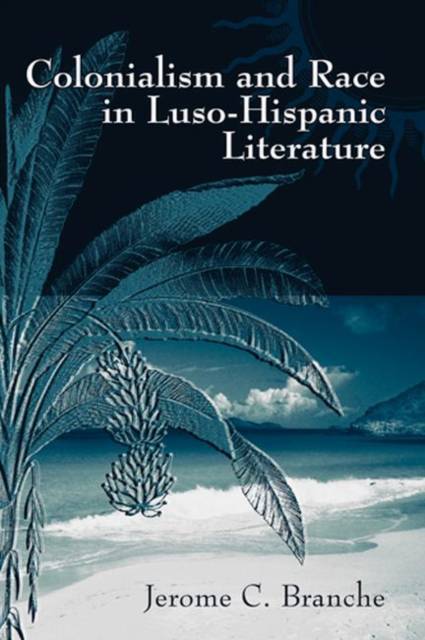
- Afhalen na 1 uur in een winkel met voorraad
- Gratis thuislevering in België vanaf € 30
- Ruim aanbod met 7 miljoen producten
- Afhalen na 1 uur in een winkel met voorraad
- Gratis thuislevering in België vanaf € 30
- Ruim aanbod met 7 miljoen producten
€ 87,45
+ 174 punten
Omschrijving
In Colonialism and Race in Luso-Hispanic Literature, Jerome C. Branche examines race naming and race making in the modern period (1415-1948). During this time, racism, a partner to both slavery and colonial exploitation, took myriad discursive forms, ranging from the reflections and treatises of philosophers and scientists to travel writing, novels, poetry, drama, and the grammar of everyday life. Branche's main premise is that modern race making went hand in hand with European expansion, the colonial enterprise, and the international development of capitalism. Branche looks at the racially partisan works of the Luso-Hispanic canon to document just how long lasting, widespread, and deep the feelings they expressed were. He also illustrates how important race as narrative has been and continues to be. Branche pays particular attention to the Portuguese travel writing of the mid-fifteenth century, Spanish drama of the sixteenth and seventeenth centuries, Cuban and Brazilian antislavery texts of the nineteenth century, and the Afro-Antillean negrismo movement of the twentieth century. While Colonialism and Race in Luso-Hispanic Literature complements important studies of the 1970s and 1990s that treat black identity in the Spanish literary tradition, at the same time its range is wider than many other works because of the inclusion of the Luso-Brazilian dimension, its examination of extraliterary texts, and its coverage of a broader time frame. Branche's marriage of postcolonial and cultural theory with his own close readings of related texts leads to a provocative reconsideration of how the Negro was portrayed in Latin American cultural discourse.
Specificaties
Betrokkenen
- Auteur(s):
- Uitgeverij:
Inhoud
- Aantal bladzijden:
- 292
- Taal:
- Engels
Eigenschappen
- Productcode (EAN):
- 9780826216137
- Verschijningsdatum:
- 1/02/2006
- Uitvoering:
- Hardcover
- Formaat:
- Genaaid
- Afmetingen:
- 167 mm x 242 mm
- Gewicht:
- 635 g

Alleen bij Standaard Boekhandel
+ 174 punten op je klantenkaart van Standaard Boekhandel
Beoordelingen
We publiceren alleen reviews die voldoen aan de voorwaarden voor reviews. Bekijk onze voorwaarden voor reviews.










